Pregnancy comes with a lot of hormonal headaches, toothache, backache, etc. There are numerous pregnancy discomforts you have to deal with while being pregnant. Although some medicines/drugs are not considered safe to be taken while being pregnant, still there are few medicines like over-the-counter medicines that are generally considered safe and are prescribed by your OBGYN.
Sometimes, a pregnant woman needs to take medicine and cure her on-going pregnancy symptom, but the concern is about fetus safety. Many medicinces are considered safe if taken during pregnancy to help mom relieve her pains and discomforts.
It is extremely important to pay special attention to the medications/drugs or supplements you take while you are pregnant, especially during the first trimester, which is a crucial time of development for the baby.
In both of my pregnancies, I had to take amoxicillin (an antibiotic). The first time it was because of tooth infection, and the second time it was due to urinary tract infection. To treat both of these ailments, I had no choice other than to take antibiotics.
Here is a breakdown for what conditions in pregnancy you might have to take prescribed drugs, which are considered safe if taken moderately.
[I am not a medical professional, this information is based on the resources I got from my medical advisors.]
This post may contain affiliate links. Please read our disclaimer for more information.
Medicines that are safe to take during pregnancy for common discomforts and pains
1. Headache during pregnancy
Take Tylenol and try to rest for fifteen minutes to an hour (as long as you can). Try to keep your worries aside for some time and take a sleep break.

2. Backache/Hip Pain or Abdominal Cramping during pregnancy
If you are having a backache or hip pain, try to take a warm shower, lay down and rest for some time. Overtiredness can cause backache. Try relieving your pain with a heating pad. Wearing a belly band and having massage should certainly help. If not relieved, it is safe to take Tylenol.
Although you have abdominal cramping every now and then. However, if you feel that your pain is getting worse and it is still not time, yes you can take Tylenol and take some rest.

For tailbone pain, I highly recommend using a donut cushion during pregnancy. It works great for tailbone pain during pregnancy and after delivery as well.
3. Leg Cramping during pregnancy
Overexertion and too much walking or standing for long hours can cause leg cramping, especially during nighttime.
Rest, stretch, drink water, take calcium and magnesium, or try a heating pad. You should feel better. You don’t need pain medication unless prescribed by the doctor.
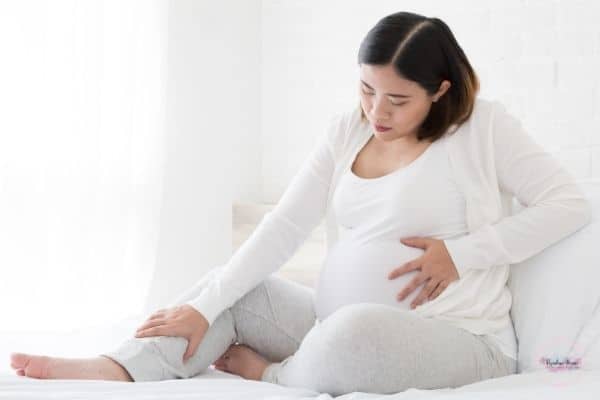
If you are tired or ached, you have to lay down and rest because if you are not well-rested, you have to take more medication which is certainly not advised.
Drink plenty of water. Dehydration is a culprit for all these pains. If you are constipated, drinking water should help.
Related: How to deal with midnight leg cramps without medication.
4. Toothache during pregnancy
For a minor toothache, you have no choice other than Tylenol. If you don’t want to take Tylenol and the pain is unbearable you can still try some home remedies or oral gel available over the counter.
At times extreme pain does trigger early labor that’s why it is advised by doctors to get your dental issues fixed. Pregnancy hormones tend to trigger dental problems.
5. How to treat Tooth Infection during pregnancy
It will help if you take antibiotics to treat tooth infections. Amoxicillin is considered safe to take during pregnancy. It should be prescribed by your medical professional. Please, if you are advised to take antibiotics, finish your dose as advised; infection tends to come back if not treated thoroughly.

Related: 17 annoying pregnancy symptoms and how to relieve.
6. Urinary Tract Infection during pregnancy
If you have been tested positive for UTI, you have to take antibiotics (amoxicillin). UTI keeps coming back if not cured properly. You have to take medicine and a lot of care to prevent you from having it again.
Empty your bladder by leaning forward while urinating.
Clean thoroughly. I highly recommend having a handheld bidet installed or get a portable one, which you eventually need after delivery.
Drinking cranberry juice may prevent you from having UTI, but when you have it already, it doesn’t help you much. It just prevents you from having it again despite having all that sugar.
Taking cranberry pills may help with UTI symptoms and pain.

7. Yeast infection during pregnancy
If you get a yeast infection – you will be prescribed Monistat for that condition.
Please do not eat/ avoid sugary items even If you have a mild yeast infection. Fruits, juices and other sugary stuff should be avoided unless it’s completely gone.
Do not use fragrant/ scented soaps or lotions in the vagina.
Wear breathable cotton clothes.
8. Sciatica pain during pregnancy
If you have a sciatica condition while pregnant, do not take any medication unless prescribed, depending on your condition. Most of the time, OBGYN recommend physiotherapy for sciatica pain. If you are not too far from your due date, it’s better to wait because usually, sciatica pain goes away after giving birth.
I had it during the last two weeks of my second pregnancy. It was painful and A LOT of discomforts but eventually, it disappeared once my daughter was born.
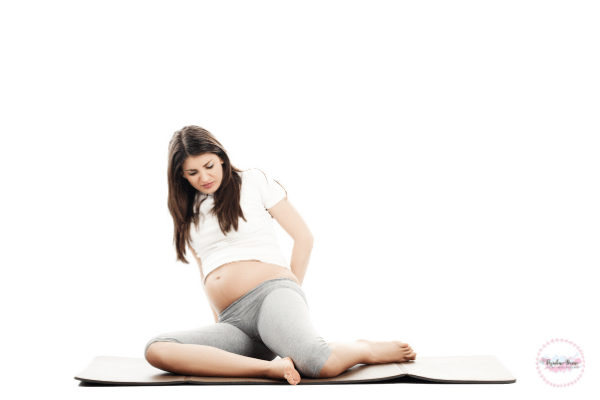
Related: 17 annoying pregnancy symptoms and how to relieve.
9. Skin Rash during pregnancy
If you get some rash or skin gets itchy around the vagina, then Hydrocortisone cream is prescribed. For itching, I highly recommend applying Curel Itch Defense Lotion all over your body after a bath or as needed.
10. feet and leg Swelling when pregnant
If you have swelling in your feet, or hands, elevate your legs, use compression stockings and drink lots of water.
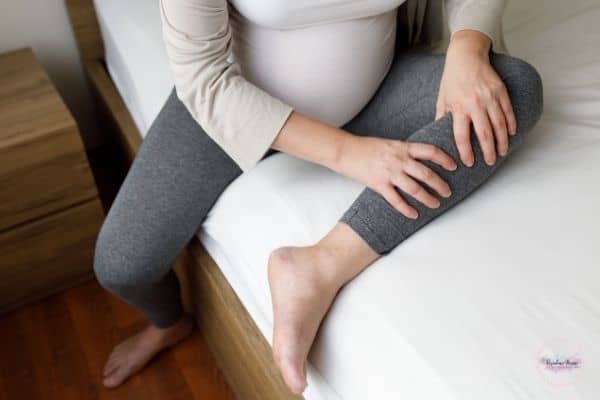
Related: How to relieve leg cramps during pregnancy.
11. Insomnia during pregnancy
If you are suffering from a lack of sleep, taking Benadryl is considered safe during pregnancy.
12. Fatigue and lethargy during pregnancy
Safe exercise during pregnancy should help in fighting fatigue. Try to establish good sleeping patterns and take naps.

Related: 13 pregnancy health mistakes you should not be making.
13. Constipation during pregnancy
If constipation gets worse, you can take a stool softener. Colace is advised to relieve constipation during pregnancy, include more fiber in your diet, and take a lot of water for extra hydration.
14. Diarrhea during pregnancy
You might get a prescription for diarrhea medicine which are Immodium, Kaopectate liquid, Maalox. Instead of taking medicines, you can try to decrease fiber in your diet until diarrhea resolves. Avoid trigger food and eat mild food like bananas, rice, toasts, applesauce, bone broth, and stay hydrated.

Related: 12 natural ways to induce labor
15. Gas and bloating during pregnancy
Gas can be really painful; avoid gas-triggering food, spicy food, and fried food. Go for a walk or do stretching head down, buttocks up. You can take Gas-X, Simethicone, and Gaviscon.
Fennel seeds help a lot for gas relief.
16. Heartburn and Nausea
For extreme nausea or vomiting, doctors prescribe vitamins like Vitamin B6 and Unisom. However, You can treat it by having fennel seeds, ginger ale, sour candies, etc.
You should avoid laying down right after eating meals. Try to avoid fried and spicy food that cause heartburn or acidity for you.
For heartburn Tums, Zantac, Maalox, Mylanta, Axid, Pepcid, Mylacon, Tagamet are considered safe to take during pregnancy.

Related: 13 ways to fight pregnancy nausea.
17. Cold and Cough during pregnancy
Ask your doctor about safe medications if you get a cold or cough during pregnancy. Tylenol, Actifed, Robitussin, Robitussin DM, Robitussin PE, and Benadryl are safe to take while pregnant.
Other than medicines, you can drink hot soups, bone broths, and ginger tea. Rest as much as you can.

Word of Caution
Please let your doctor know about what vitamins or supplements you are taking or any medications you are taking before getting pregnant and even while being pregnant like prenatal, folic acid, biotin or any other supplements. Some of the supplements are not safe to take during pregnancy, such as hair growth supplements, collagen etc. Always discuss with your doctor what vitamins or supplements you take during pregnancy.
Related: Baby essentials you need for your baby’s first year.

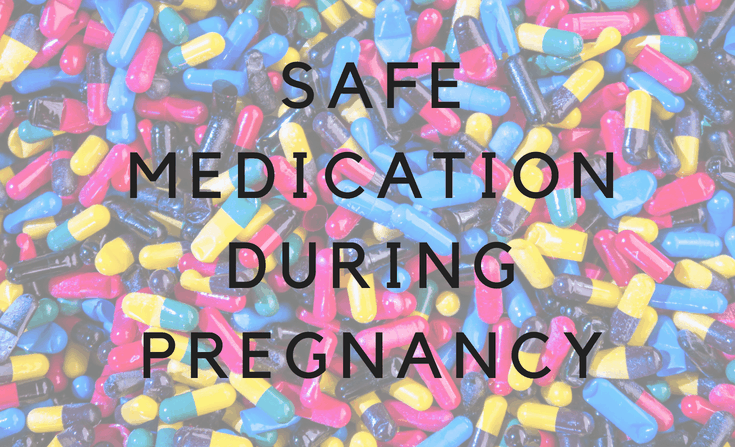
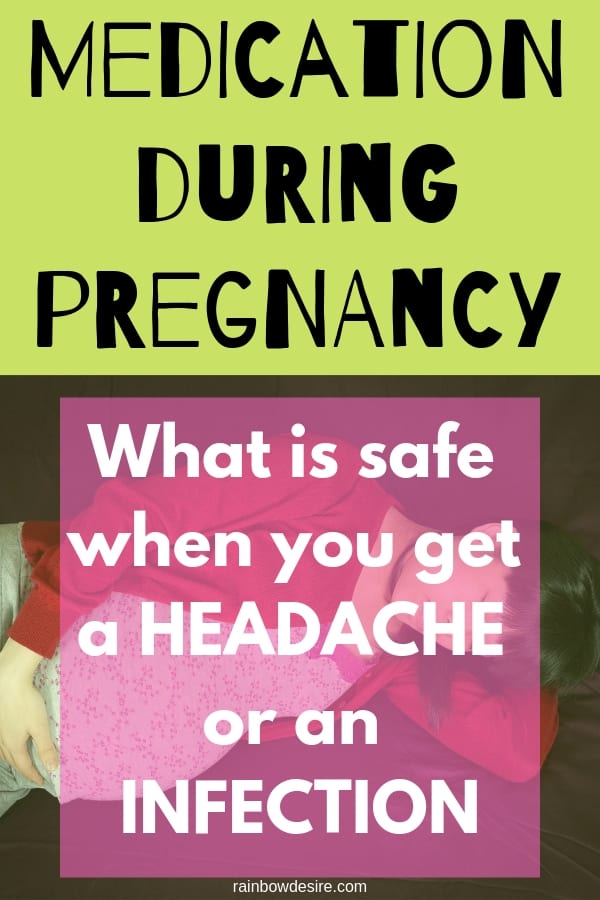
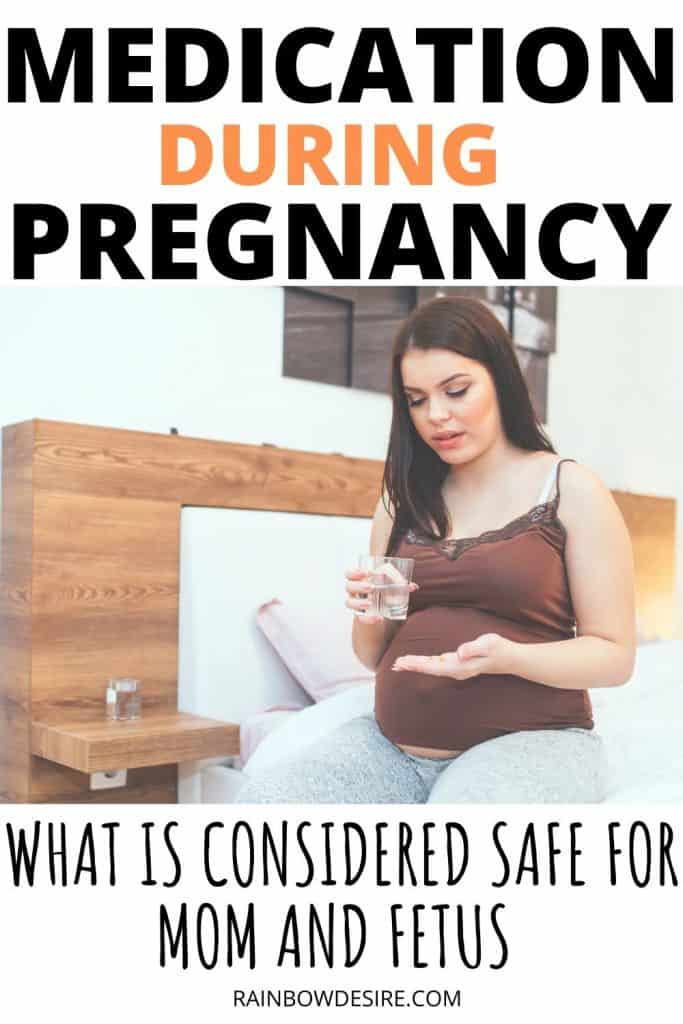
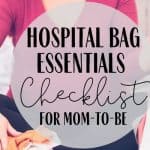

Thank you for such a comprehensive list!
You are very welcome. 🙂